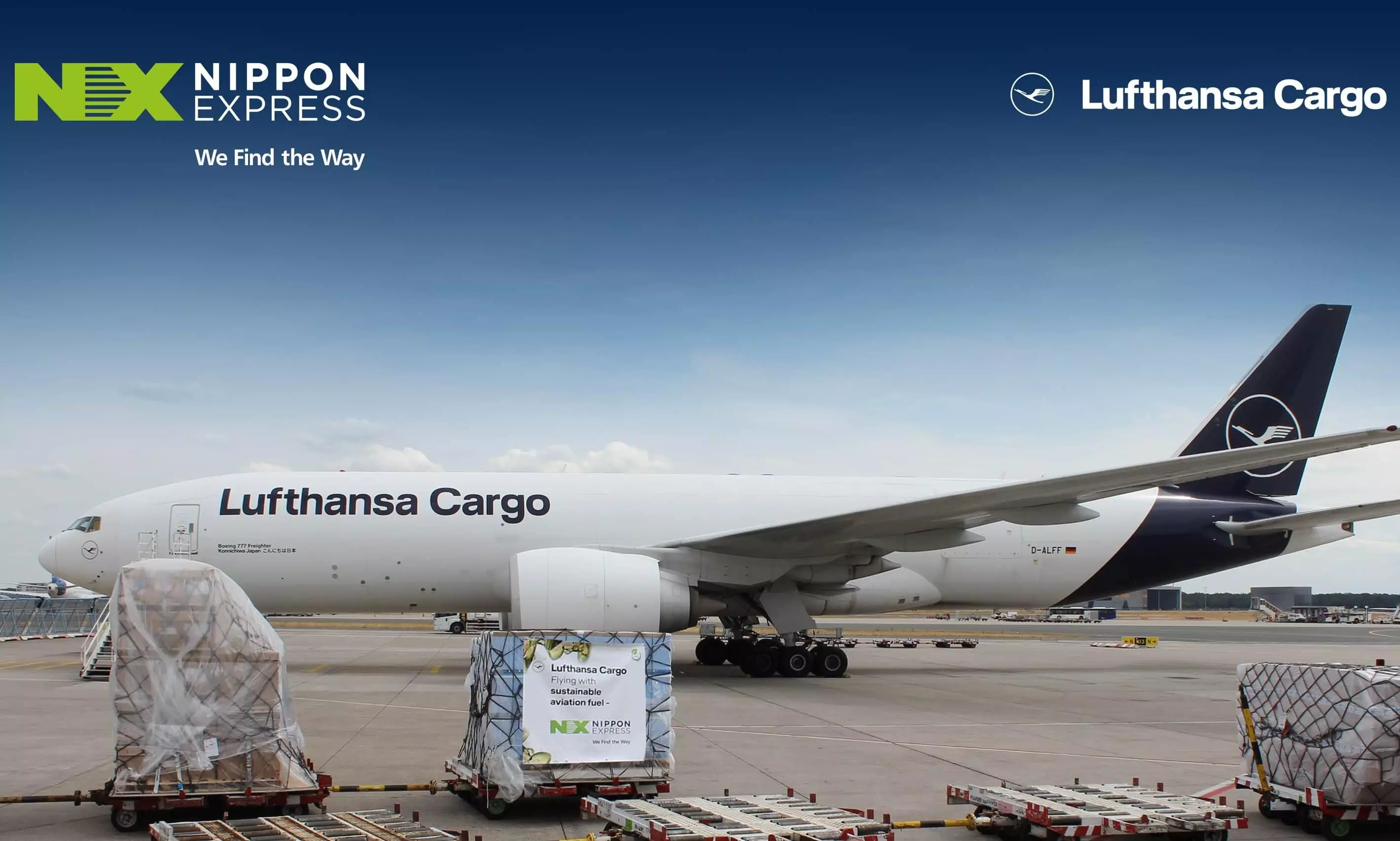
Lufthansa Cargo, Nippon Express Europe conclude SAF agreement
Global Japanese logistics company to use SAF for airfreight transports with Lufthansa Cargo in the future

Lufthansa Cargo and Japanese logistics company Nippon Express Europe agreed to advocate the use of sustainable aviation fuel (SAF) when transporting airfreight shipments.
"The environmentally friendly aviation fuel will enable the Nippon Express Group to achieve emissions savings of approximately 3,150 tonnes within one year," says a release from Lufthansa Cargo.
The agreement reached with Lufthansa Cargo includes contributing to high-quality and certified climate protection projects for the so-called well-to-tank emissions that arise during the production and supply of SAF, the release added.
The Nippon Express Group has set the goal of a 50 percent reduction in SCOPE 1 and 2 emissions by 2030 compared to 2013 as a response to climate change, and of contributing to the realisation of a carbon-neutral society by 2050. "Nippon Express Company aims to reduce emissions by 350,000 tonnes by 2023, equivalent to a 30 percent reduction from 2013 levels. In May 2023, Nippon Express Holdings submitted a Letter of Commitment to be certified as a Science Based Targets (SBT) company, and the entire group is working together to achieve a carbon neutral society by 2050."
Ashwin Bhat, CEO, Lufthansa Cargo says: "We have enjoyed a trusting long-standing relationship with Nippon Express Europe as a global partner. We appreciate working jointly with Nippon Express Europe also on sustainability goals that are important to both of us. Every player in the logistics industry has a model here, and only together can we succeed in making our business more environmentally friendly along the entire supply chain. The more SAF is used in the transportation of goods by air freight, the more likely we are to succeed in moving away from fossil fuels, making the entire air freight industry more sustainable."
Shinichi Kakiyama, Managing Director, Nippon Express Europe adds: "We at the Nippon Express Group remain mindful of the environmental effect of the increasing demand for air freight. We fully acknowledge this reality, and we must move quickly to take action to slow global warming. This agreement to advocate using SAF represents a step in the right direction on the way to a greener future. Together with Lufthansa Cargo, we are honoured to embark on this journey to meet our sustainability goals and fulfil our ongoing commitment to combat climate change."
With its Boeing 777F long-haul fleet, Lufthansa Cargo operates the most modern and efficient freighters, the release said. "In order to reduce the fleet's carbon footprint even further, the freighters have been successively equipped with AeroSHARK since the beginning of the year: an innovative foil modelled on shark skin reduces the aircraft's frictional resistance in the air. This saves around 3,700 tonnes of kerosene and almost 11,700 tonnes of CO₂ emissions per year. Furthermore, Lufthansa Cargo exclusively uses lightweight containers as well as lightweight nets and foils made of recycled material in handling. In recent years, the airline has also established a global, company-wide environmental management system that is certified according to the ISO standard and helps to implement sustainable measures in a targeted manner."
Lufthansa Cargo customers can use an emissions calculator integrated into the online booking tool eBooking to determine and offset the CO₂ emissions for the transport of their goods during the booking process, the release added.

